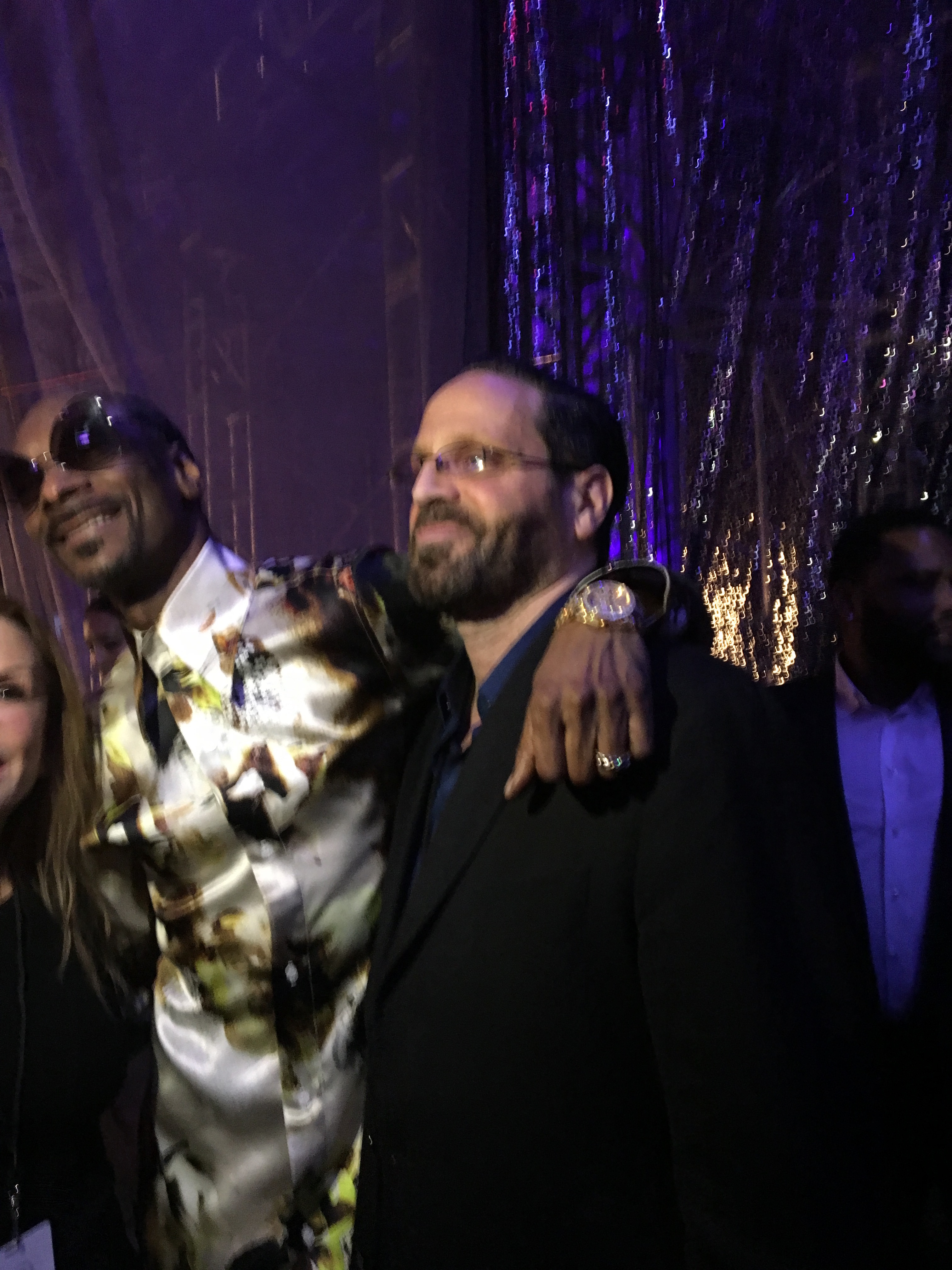AMM Inspiration: Snoop Dogg

Snoop’s Journey: Gang member → Class clown → 30 million albums
We learn them the hard way, and sometimes the easy way. But the lessons life gives us are often more valuable than the easily attained success it offers. If viewed properly, each of these lessons offer an amazing opportunity to learn and educate. We can implement the lessons learned from adversity and use them to better ourselves and move forward in life.

Perhaps you wonder why I would include Snoop Dogg in a book like this. Considering his upbringing and background, who better to send a message to inner city youth that they too can be successful in life? The reality is that Snoop learned an enormous amount about life through dealing with some of life’s most difficult situations. But it was learning those lessons in the manner that he did that has given him the perspective that has changed the way he views life.
Most know the side of Snoop associated with his alleged gang membership in the infamous Rollin’ 20 Crips on the east side of Long Beach, California, and from his numerous brushes with the law. But the reality is that over the years, Snoop Dogg has grown to become a role model and mentor to those who face the same challenges he once did.
Born Calvin Cordozar Broadus Jr., in 1971, Snoop Dogg has risen from his Long Beach roots to become one of the most successful musicians in recent history. As an award-winning rapper, singer-songwriter, record producer, and actor, he has already left a legacy of music around the world, to the tune of over thirty million albums sold.
Snoop has been associated with some of the top recording labels—including Death Row Records, No Limit Records, Priority/Capitol/EMI Records, and Geffen Records.
His father, a Vietnam veteran, singer, and mail carrier, left the family when Snoop was only three months old. His mother gave him his now-famous nickname because she thought he looked like the Snoopy character in the Peanuts cartoons.
Snoop’s talent was evident at an early age when he began singing and playing the piano at Golgotha Trinity Baptist Church. But it wasn’t until he was in the sixth grade that he started rapping.
According to Snoop, “People thought I was going to be a comedian—not a rapper. I was always the class clown.”
I had the chance to interview Snoop during a press conference where he was promoting his youth football league. Snoop is a certified football coach and avid sports fan (including football, hockey, and baseball).

“Football coaches—not rap stars or musicians—helped make me in the long run. They were my true mentors. I want to give something back—to give these kids something I never had.”
“It is very important for kids to have mentors and role models. I try to let each kid get to know me as a person; then he can trust me. They need to have someone they can talk to.”
“I asked one kid who wasn’t really good enough to be on the team if he wanted to be the water boy. He said yes—and he learned what football was all about. The next year he was the most valuable player on the team! Now that’s what it’s all about.”
“I want the best for the kids. I want to see who will be the next superstar. You don’t need to be the best football player. If you have the heart and desire, you can really enjoy the game and be successful.”
“I would tell you to pass this along to your readers: if a kid can have a winning attitude in any sport, or in school, or in anything he tries, he can certainly be a winner!”
This holds true for Snoop’s own son. As I was updating the stories for this book, I learned that Snoop’s philosophy has paid off. His son Cordell, a high school senior at the time this book went to press, is on the top national recruiting list for college football wide receivers, being recruited by some of the nation’s top programs including LSU, Baylor, Notre Dame and Florida State. In February 2015, he committed to playing for UCLA.
Despite the concerns some people have with Snoop, you can see through his better-known quotes that he has tried to empower youth over the years:
“Love goes unappreciated a lot of times, but you still gotta keep giving it.”
“It’s so easy for a kid to join a gang, to do drugs…we should make it that easy to be involved in football and academics. Sometimes a loss is the best thing that can happen. It can teach you what you should have done—and what you should do next time.”
“If it’s flipping hamburgers at McDonald’s, be the best hamburger flipper in the world. Whatever you do, you have to master your craft.”
In 2012, Snoop Dogg announced, in conjunction with his first reggae album, that he was changing his name to Snoop Lion. Promoting the album Reincarnation on the Howard Stern Show, Snoop explained:
“Growing up in the environment I came from, I am not proud of all I did. But it was a learning experience…Snoop Lion is like a transformation for me. My role models and mentors used to be drug dealers and gangsters. Now I am feeding off positive energy. Going to jail showed me a place that I did not want to be.”
Snoop’s Empowering Thought: “ Sometimes a loss is the best thing that can happen. It can teach you what you should have done and what you should do next time.”
Do It Daily:
Go all out. Whatever it is you do, become a master of your craft. Remember that how you do anything is how you should do everything. Whether big or small, take the time and devote the energy to be the best in all you do.
Learn from your past to build a better future. Recognize that mistakes and bad decisions are simply part of the journey. But what you take away from those decisions is what can be the difference in what you can accomplish much later in your life.
Jerry Gladstone is the author of the international best selling book, The Common Thread of Over- coming Adversity and Living Your Dreams. Jerry is a success and life coach as well as a corporate speaker. TheCommonThreadGroup.com







